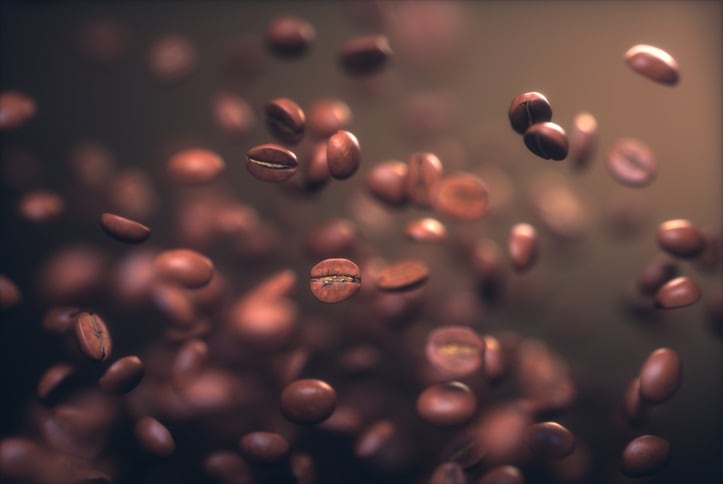Controversial because some studies suggest that coffee can increase a drinker’s risk of being diagnosed with cancer. At the same time, others have indicated increasing consumption of the drink may be a protective effect and reduce the chances of dying of the disease.
New research led by Stewart MacGregor, an associate professor of statistical genetics at QIMR Berghofer in Brisbane, has been groundbreaking. By stripping away what he refers to as the “problems of previous studies”, Dr MacGregor believes he has resolved the controversy.
Mixed messages
Coffee contains a complex mixture of bioactive ingredients, including substances such as caffeine and kahweol, which have been shown to display anti-tumour effects in animal studies.
Its potential anti-cancer effect on humans has not been established however, with research to date producing conflicting findings for overall cancer risk and for individual cancers such as breast and prostate cancers.
“We know that coffee is one of the most popular drinks in the world, but there continue to be mixed messages about the role it plays in disease,” said MacGregor.
He believes, for example, that some papers suffer from publication bias, by finding a single modifiable risk factor, such as drinking coffee, would alter disease risk and so tend to become more newsworthy.
Other studies, he says, have failed to differentiate coffee’s role and lifestyle factors, such as smoking, exercise levels and diet, and cancer incidence. Each of these can be correlated with coffee drinking, for instance those with a sedentary lifestyle who put on the kettle more often each day.
Large sample size
To set aside these factors, MacGregor’s team looked at data from more than 300,000 people—an enormous group. They also approached the research by using a different methodology.
“We looked at the genetic predisposition for how much coffee the subjects would drink and used this to try to find at a link between coffee consumption and cancer risk,” MacGregor said.
By doing so, it was shown that drinking coffee every day neither reduced nor increased a person’s risk of developing any cancer.
As scientists unravel the human genome, they are finding genes that exert an influence on our behaviour and tastes. For instance, genes have been identified that can dictate our preference for coffee over tea. They also govern how our bodies metabolise caffeine, which reflects on the quantity we feel the need to consume.
But the number of genes identified remains small, and parallel with the QIMR Berghofer study, MacGregor’s team have have identified many new genes associated with coffee consumption.
As a model for prediction, though, our genetic make-up does not give spectacularly accurate results, but in reasonable numbers it can be show that trends do exists.
“We can follow people with a coffee predisposition and say, over time, that those subjects have a higher cancer risk or not. If we look at genes for coffee and genes for cancer, and if those line up, it suggests a link between coffee and cancer. And if they don’t line up, it suggests there’s no link,” MacGregor said.
“Because these predictions are not very precise, it isn’t possible to show that this guy will drink 10 cups a day and the other guy will drink five cups. But we can say that, on average, people with certain coffee genes might drink half a cup more a day than others.”
By taking into account a person’s genetics, though, his team has been able to separate out coffee predisposition from socioeconomic status, smoking, fitness and anything else that might be correlated with coffee. This, in turn, offers a better idea about whether changing coffee consumption habits would actually affect the chance of getting cancer.
Doing things in this way can make a strong statement by disproving studies showing a link between coffee and cancer.
“Because our study is bigger, and by using genetics to remove the problems of previous studies, we hope this will help resolve the controversy,” MacGregor said.
Risk factors
The team also looked at overall cancer risk, rather than specific cancers, such as ovarian cancer. By taking this wider approach, the results would have a real-world utility because ultimately, people would be unlikely to consider changing their coffee consumption behaviour based on the risk of just one cancer.
“They won’t care about which cancer they will get; they just want to know if they’ll get cancer full stop,” said MacGregor.
“This study looks at getting any cancer. It gives a broader picture to whether changing my consumption of coffee will change my cancer risk, and the answer is, we think it won’t—or not to a degree we can detect in a large study.”
Taking their two-pronged research approach further, the QIMR Berghofer team have been looking at other supposedly identifiable cancer risk factors. For instance, they have been investigating whether alcohol consumption, which is also partly genetically determined, can affect people’s chances of getting cancer.
“On a bigger scale, say at a government level, if you know the risk factors that are associated with a disease, they can come up with policies to encourage people to change that,” MacGregor said.
But at this stage, his team has managed to demystify coffee consumption and the controversy surrounding its relationship with cancer.
“The health benefits of coffee have been argued for a long time, but this research shows simply changing your coffee consumption isn’t an effective way of protecting yourself from cancer,” he added.
Reference: International Journal of Epidemiology, dyz144. 'Association between coffee consumption and overall risk of being diagnosed with or dying from cancer among >300 000 UK Biobank participants in a large-scale Mendelian randomization study'. https://doi.org/10.1093/ije/dyz144




